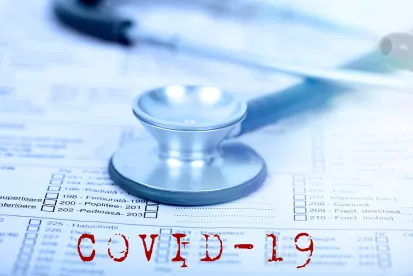As reported previously, on October 2, 2020 the Michigan Supreme Court invalidated legal authorities relied upon by Governor Gretchen Whitmer to unilaterally extend or declare emergencies in relation to the COVID-19 pandemic. (See In re Certified Questions from the United States District Court, Western District of Michigan, Southern Division (Midwest Institute of Health, PLLC v Governor) (the “Opinion”)).
This update highlights key changes that have occurred this week in response to the Opinion, as well as their likely impacts on individuals and businesses in the state. For more information about recommended steps, please contact your Foley relationship partner or attorney.
Executive Response
In her initial statement addressing the Opinion, Governor Gretchen Whitmer stated that changes resulting from the court’s decision would not take effect for 21 days. Amid uncertainty surrounding the validity of this statement, the Governor also filed a motion asking the Supreme Court to delay the Opinion’s effective date until October 30th to “enable an orderly transition to manage this ongoing crisis.” As of this writing, that motion remains pending.
On Sunday October 3rd, Attorney General Dana Nessel announced that in response to the Supreme Court’s opinion her office would no longer enforce the Governor’s Executive Orders through criminal prosecution. While exact procedural ramifications of the Opinion are likely the become clearer in the coming days, the likely impact of this statement, in conjunction with the Order, is to render the vast majority of Governor Whitmer’s executive orders moot, effective immediately.
Despite initial indications that the Governor’s office and the legislature might seek agreement on COVID-19 legislation moving forward, statements made by both Republicans and Democrats indicate strong disagreement over the protections that should be required by law.
Following the Opinion’s issuance, Senate Majority Leader Mike Shirkey tweeted that he opposes a statewide mask mandate or monitoring in line with U.S. Centers for Disease Control and Prevention (“CDC”) recommendations for policymakers, despite guidance from the CDC stating that masks are one of the simplest and most important means of source control.
Lt. Governor Garlin Gilchrist on Wednesday sent an open letter to Majority Leader Shirkey, as well as House Speaker Lee Chatfield, requesting both to enforce a mask requirement in their respective chambers and urging both leaders to put politics aside regarding the mask issue.
Governor Whitmer’s responses have been less diplomatic. In a Tuesday news conference, the Governor stated that she, “… think[s] it’s concerning that the top Republican in Michigan government is an anti-masker and doesn’t want to encourage or require everyone across the state to mask up.” She added that Senator Shirkey’s stance shows “a real disdain for science and ignorance of the epidemiology we are up against.”
Regulatory and Local Response
Almost immediately following the Opinion’s issuance, local governments and the state Department of Health and Human Services (“MDHHS”) began issuing independent orders to fill gaps created by the Michigan Supreme Court’s decision. Local governments and MDHHS are independently authorized under the Public Health Code (1978 PA 368, MCL 333.1101 et. seq.) to issue emergency orders addressing public health crises such as COVID-19.
Ingham and Oakland County health officials over the weekend issued local mask mandates, among other orders to protect public health amid uncertainly of what the state-level response would be. Oakland County’s local order has since been rescinded in response to the statewide order issued by MDHHS (discussed below).
On Monday, MDHHS issued its own initial order, titled “Emergency Order Under MCL 333.2253 – Gathering Prohibition and Mask Order”. The order replaces a number of the Governor’s executive orders and requires face coverings at all gatherings. The order also generally limits gathering sizes to 10 persons indoors and 100 persons outdoors statewide – with allowances for non-residential venues where social distance may be maintained for larger groups by limiting capacity.
Unlike the Governor’s executive orders, however, the emergency order does not specify whether businesses or government offices must deny access to people without face coverings, nor does it require businesses to post signs regarding the face covering obligation. Additionally, there is no requirement which explicitly requires face coverings to be used in workplaces by employees, or which requires work which can be performed remotely to be performed remotely.
MDHHS also issued two additional orders Tuesday. The first requires local health departmentsto notify schools of COVID-19 cases affecting their districts, and also requires the school to subsequently notify the public of the diagnosis. The second order promulgated rules regarding protections for residents and staff in residential care, congregate care and juvenile justice facilities.
In addition to local and MDHHS orders, Michigan Occupational Safety and Health Administration (MIOSHA) has stated that it will continue to inspect and enforce “general duty” citations related to COVID-19 for failing to protect workers and follow workplace guidelines. The MIOSHA “general duty” clause requires an employer to provide a workplace that is free from recognized hazards that are causing, or are likely to cause, death or serious physical harm to the employee. A general duty clause citation carries a fine of up to $7,000.
Areas which were previously covered by gubernatorial executive orders which have not been replaced to date include (in part):
-
Eviction protection programs;
-
Open Meetings Act rules amendments allowing for virtual meetings;
-
Suspension of required health care provider exams, fingerprinting and continuing education requirements;
-
Electronic signature and notary allowances;
-
Automatic workers’ compensation eligibility for front line workers who test positive for COVID-19;
-
Migrant worker housing protections; and
-
Water shutoff moratoriums.
It is expected that some of these topics will be addressed in the coming days and weeks.
Legislative Responses and Additional Sources of Authority
While the most immediate reactions to the Opinion have occurred in the executive branch and at the local level, a number of bills related to the COVID-19 epidemic were taken up by the Republican-controlled Legislature this week, and passed the Senate. These include:
-
SB 1094, which would require the state to implement dedicated facilities to house COVID-19 positive nursing home residents.
-
HB 6159, which would provide health care workers immunity from lawsuits stemming from services provided to patients in response to the pandemic.
-
SB 886, which would allow unemployed individuals filing an initial claim because of COVID-19 to receive up to 26 weeks of benefits. (Passed, subject to passage of a set of house bills providing COVID-19 liability protections to businesses)
-
SB 911, which would allow retirees form the Unemployment Insurance Agency or Michigan Occupational Safety and Health Administration to be rehired without losing retirement benefits during the pandemic.
-
SB 1108, which would amend the Open Meetings Act to allow for the possibility of electronic virtual meetings of public bodies without the need for an executive order.
In addition, it should be noted that the Supreme Court’s opinion does not affect federal laws, including the Families First Coronavirus Response Act, which permits employees to take leave under the Emergency Paid Sick Leave Act and the Emergency Family and Medical Leave Expansion Act. It also does not affect state legislation passed in response to COVID-19. This includes laws made effective earlier this year creating Return to Learn and Learning Plans protocols (2020 PA 147, 148, and 149) and the law allocating budget funding to support the states COVID-19 response (2020 PA 123).
Finally, all of this is happening in the backdrop of the shocking and horrifying revelations yesterday of the foiled kidnapping plot against the Governor. As the Governor made clear at her news conference, these developments have strengthened her resolve to continue to fight COVID-19 in ways that she believes will best protect Michiganders.
We will continue to monitor and report on developments in these areas.






 />i
/>i
